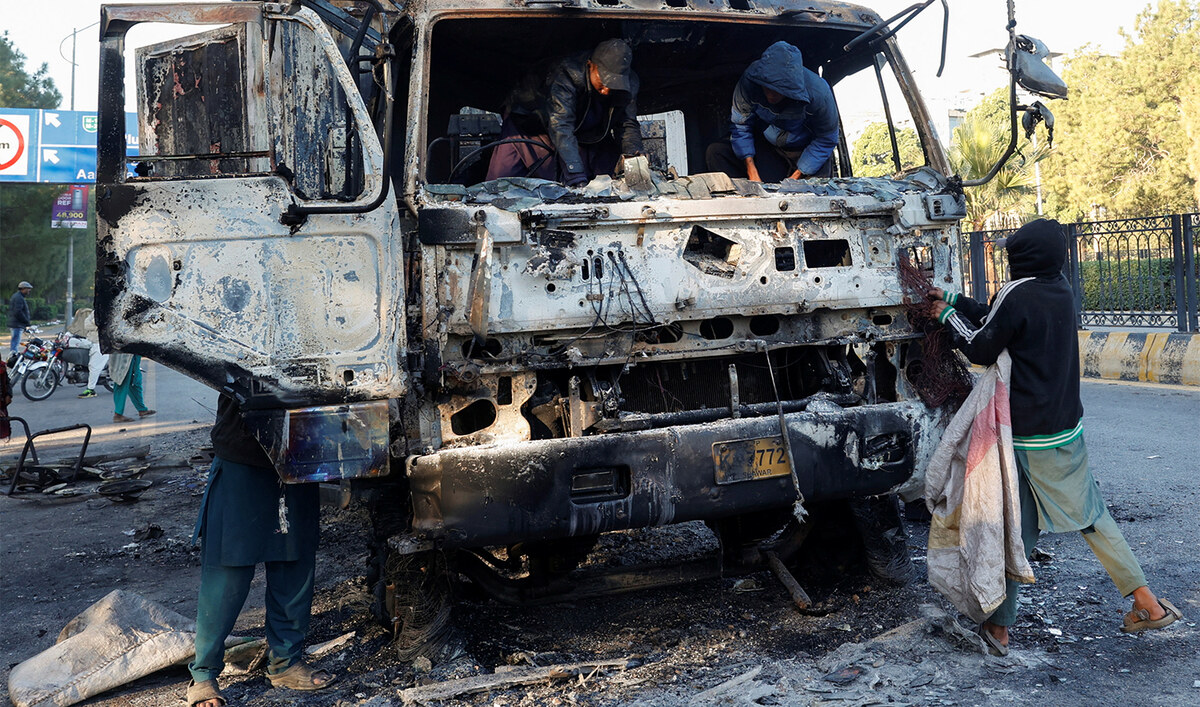KARACHI: Waheed Murad Shaikh, a prominent musician from Karachi’s Gazdarabad neighborhood, sat in a small community space built along the roadside earlier this month, singing a song in a local dialect to pay homage to his ancestral Rajasthani roots.
Such late-night rendezvous spent at gazebo-like community spaces called “bakaras” are an integral part of the social fabric of Muslim Marwaris, or Silawats, who migrated from India to Karachi in the nineteenth century.
Long associated with delicate stone masonry and involved in the construction and building of what is today Pakistan’s largest city and commercial capital, Silawats number around 20,000 and live together in one crowded locality in Gazdarabad where they have preserved the tradition of spending long nights in bakaras.
“If we compare it with other places, 2 o’clock [at night] in our neighborhood seems like what for others is their evening time,” Shaikh, 54, told Arab News. “There is a sense of belonging here.”
Around him, street vendors buzzed around offering local delicacies such as bhel puri, qeema and sweets to those sitting in bakaras playing cards, watching cricket, discussing politics or listening to music.
“We can’t stay in our small rooms, which we call derhias, meaning one-and-a-half room [residences],” community leader Danish Altamas told Arab News on a late December night.
“These bakaras are our lifeline. We can’t live without these bakaras.”
The look and feel of a bakara differed according to who ran it, Altamas explained.
“If the bakara belongs to a young person, it will have LEDs or TV also to watch cricket matches,” he said. “And if the bakara belongs to some old persons, they are something simple, and people sit and talk about politics.”
The secret to the preservation of the communal tradition was that the community had lived together in the same neighborhood for so many generations, Farooq Azam Fareed, an architect from the community, said.
“It is one community, one language, one culture here,” he said. “So, they have all been staying here and residing here for many generations. Each one of us knows the other and each of us is closely or remotely related. That’s why there’s a strong sense of community.”
In Gazdarabad, women too have their own bakaras.
“Throughout the day, we stay at home and remain busy,” Nausheen, a housewife who only shared her first name, told Arab News. “At night, we sit together, listen to each other, talk about one another, and share our issues.”
She described bakaras not only as “places of gossip” but also community centers where one instantly learnt intimate details about other community members, including who was unwell or had passed away, making it easier for people to take care of each other.
“If there is an occasion of happiness, we celebrate together,” Nausheen said.
“This is our culture that people of our community sit together and deal with good and bad things together.”



















